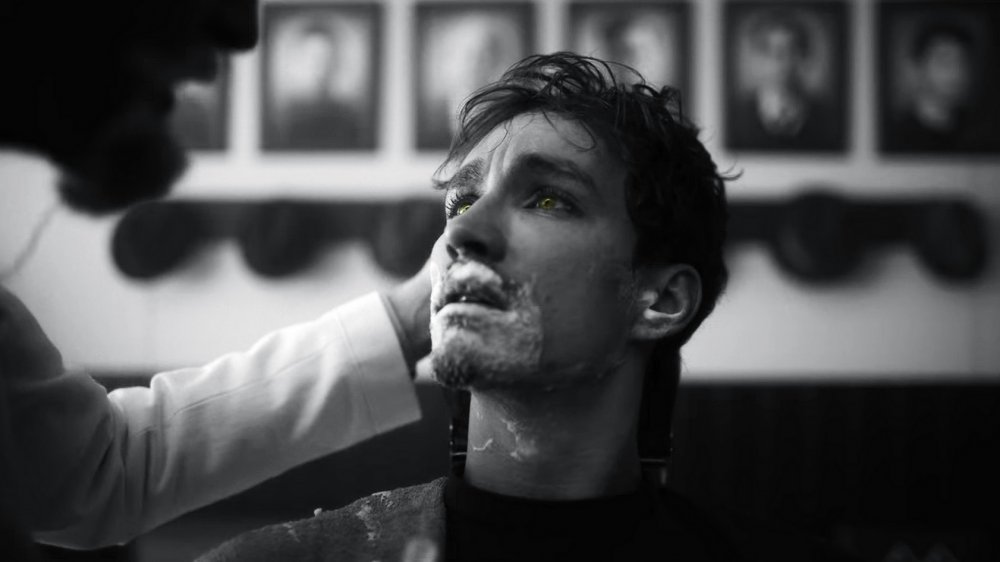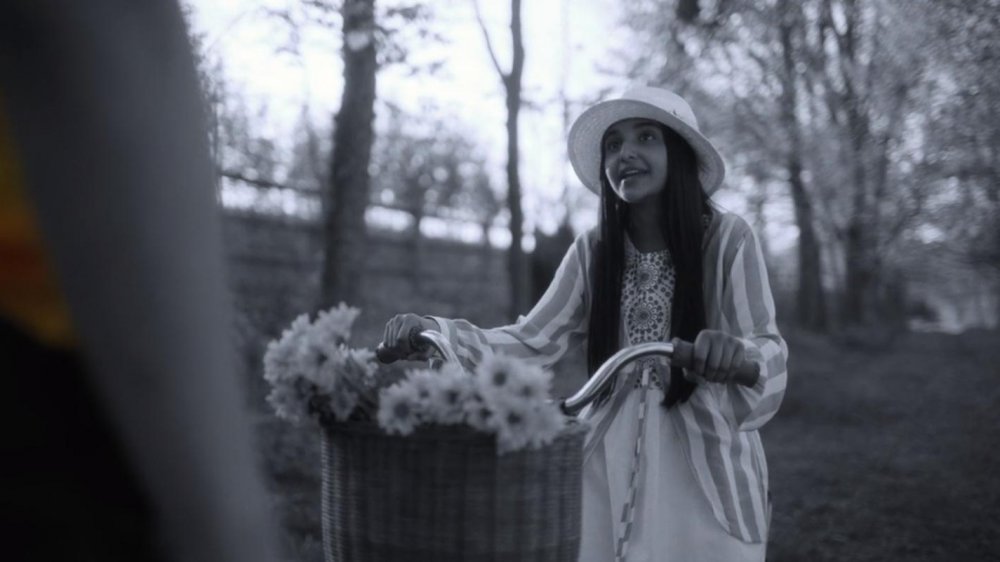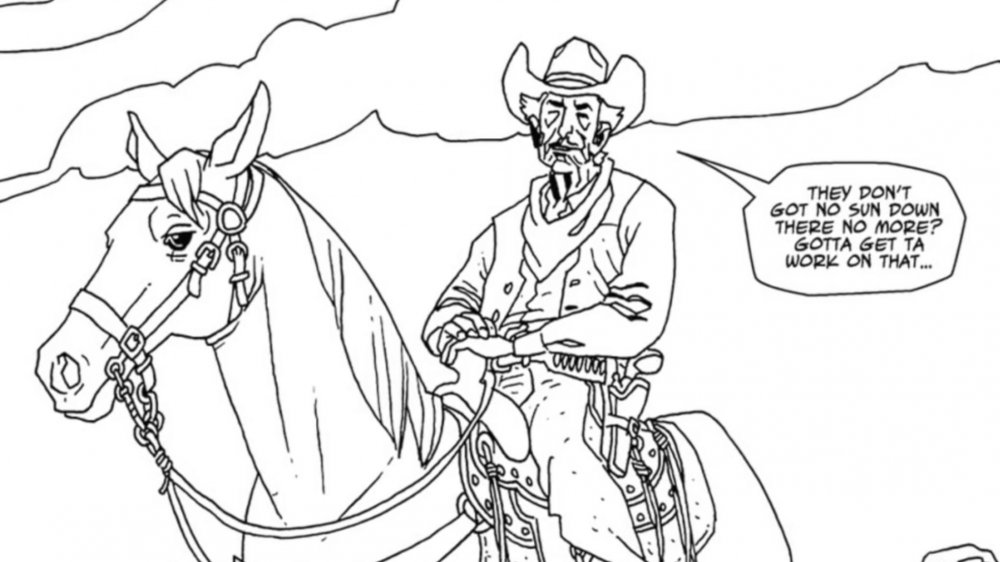The Klaus Moment In Umbrella Academy That Should Have Been Very Different
Of all the members of the Umbrella Academy, Klaus (Robert Sheehan) — aka Number Four, or the Séance to comic book fans — has the coolest and creepiest power. He can communicate with the dead, and later, he can make ghosts temporarily corporeal and allow them to possess him.
But on the seventh episode of The Umbrella Academy season 1, it looks like Klaus may be the one crossing the boundaries between the living and the dead. He knocks his head after a fall at a nightclub and wakes up — or doesn't — in what seems to be the afterlife.
This brush with death also happens in the comic series the show is based on, but how it goes down is one of the ways Netflix's Umbrella Academy differs from the comic. For starters, in the comic, Klaus dies from a shot to the head, courtesy of time-traveling assassins Hazel and Cha-Cha (played by Cameron Britton and Mary J. Blige, respectively, on the show). And what he finds on the other side might be even weirder.
Here's the Klaus moment in The Umbrella Academy that should have been very different, and why showrunner Steve Blackman decided to shake it up.
On the Netflix series, Klaus meets God (maybe) and his father
On the Netflix series, Klaus' brush with death provides some major plot developments. He wakes up in a black-and-white country lane (the only color is in his palm tree-printed tank top) and flags down a young girl on a bike (Birva Pandya). The following dialogue implies that she may be God, although Klaus informs her that he's agnostic.
Maybe-God tells Klaus that he can't stay in the afterlife with her, because she doesn't like him "all that much" — even though she acknowledges that she probably made him (she "made everything else," so it tracks). She then tells Klaus, "He's waiting for you." Klaus thinks she means Dave (Cody Ray Thompson), the boyfriend he watched die in the Vietnam War, so he runs off to the shed she's gesturing towards.
However, the shed is actually a barbershop. Inside, Klaus' dead adoptive father, Sir Reginald Hargreeves (Colm Feore), gives him a shave and a lecture about not living up to his potential, and using drugs to dull his powers. Sir Reginald then reveals that he killed himself in order to bring the Umbrella Academy back together to stop the apocalypse. He's just about to tell Klaus something important when Klaus wakes up back on Earth.
In 2019, Sir Reginald actor Colm Feore told Pop Mythology that this was one of his favorite scenes to shoot, partly because he's a fan of Klaus actor Robert Sheehan. He wanted the shave to look convincing, so he bought a straight razor (and solicited some advice) from a local barbershop and practiced on himself at home. "Luckily, the gashes were hidden by my beard and mustache! But I was practicing to be good for Robert," he said.
God looks very different in the Umbrella Academy comics
In The Umbrella Academy: Dallas #3, Klaus also finds himself in a black-and-white afterlife after being shot in the head. But this time, it's a desert, and the version of God he meets is a white male cowboy on horseback. This maybe-God is even more hostile. Just as the young girl does on the show, in the comics, the cowboy comments on Klaus' paleness and tells Klaus he doesn't like him, even though he made him, adding that the Devil doesn't want him either. (Maybe-God also uses ungodly racist and homophobic terms when speaking to Klaus.)
Instead of sending Klaus to see Sir Reginald for a lecture, this maybe-God tells him to stop doing drugs. He also tells Klaus that he must kill Hazel and Cha-Cha — which Klaus does by possessing Cha-Cha and shooting Hazel, then shooting Cha-Cha as Cha-Cha, before returning to his own body, no longer dead.
Speaking with Variety in June 2019, series showrunner Steve Blackman explained his reasoning for the changes. First of all, he wanted it to be unclear whether Klaus was dead or hallucinating from a head injury. Second, he wanted to introduce a different take on God by having maybe-God played by a young girl of color. "I just didn't want a stereotype of a male God on a horse looking down. I thought it was much more interesting to have this young girl drive up on a bike and be annoyed by all of Klaus' questions," Blackman explained.
As for the barbershop interaction, in addition to being a visually interesting take on the afterlife, the Klaus shaving scene means more than you think. Reginald physically cleans up Klaus as he orders him to get clean of his drug and alcohol addictions. It also turns Klaus into a hero, because he gets to explain his father's plan to his siblings — if they'll believe him, of course.


